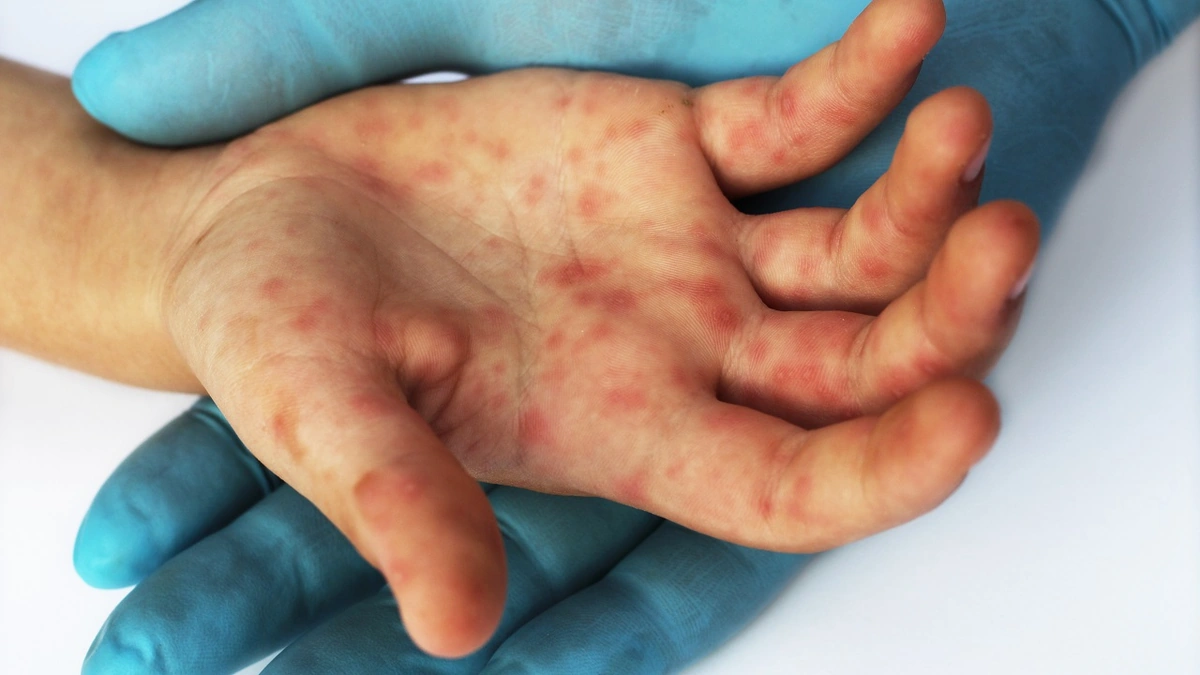Okay, let’s talk about the measles. Not in a theoretical, “remember to get your shots” kind of way, but in a very real, “South Carolina just quarantined over 150 unvaccinated students because of a measles outbreak ” kind of way. What fascinates me is how something we often think of as a disease of the past is suddenly making headlines again. So, what’s the deal? And more importantly, why should you, especially if you’re in India, care about something happening thousands of miles away?
The Why | Measles Isn’t Just a Childhood Disease Anymore

Here’s the thing: measles is incredibly contagious. We’re talking about a virus that can linger in the air for up to two hours after an infected person has left the room. And that’s where the problem starts. You see, even with advancements in modern medicine, measles remains a serious public health threat. While most people associate measles with childhood, it can infect individuals of any age who aren’t vaccinated or haven’t had the disease previously. The resurgence in cases globally, and now in South Carolina, points to a larger issue: declining vaccination rates and increased measles exposure in susceptible populations.
But why should someone in India be concerned about a measles outbreak in South Carolina ? Because in our interconnected world, diseases don’t respect borders. International travel is commonplace, and a traveler infected with measles can easily bring the virus to a new location, sparking local outbreaks. In the grand scheme, it’s a complex issue, intertwining public health infrastructure, individual choices about vaccinations, and the global landscape of disease transmission. A local outbreak somewhere can become a global concern faster than ever. It highlights why consistent and widespread immunization programs are critical in every country, including India.
Understanding the Risks | Complications and Vulnerable Populations
Let’s be honest – measles isn’t just a case of annoying spots. It can lead to serious complications, especially in vulnerable populations. These include young children, pregnant women, and people with weakened immune systems. Complications can range from pneumonia and ear infections to encephalitis (inflammation of the brain), which can cause permanent brain damage. In rare cases, measles can even be fatal.
A common mistake I see people make is underestimating the severity of measles. According to the CDC , while most people recover without long-term issues, the risk of complications is very real. And that’s why quarantine measures, like the one in South Carolina, are put in place – to protect those most at risk from contracting measles and developing severe health problems.
How to Protect Yourself and Your Family from Measles
Okay, so what can you do? The good news is that measles is highly preventable through vaccination. The MMR vaccine (measles, mumps, and rubella) is safe and effective. Let me rephrase that for clarity: vaccination is your best defense. In India, routine immunization programs include the MMR vaccine. According to the WHO India , ensuring your family is up-to-date on their vaccinations is the most important step you can take.
Beyond that, here are some practical steps. If you’re planning to travel internationally, check with your doctor to ensure you’re protected against measles. Practice good hygiene, like frequent handwashing. And if you suspect you’ve been exposed to measles, contact your healthcare provider immediately.
And, speaking of precautions, if you are traveling, make sure you know what to do to protect your belongings. Check out this article about Brighton Park Shooting .
Debunking Myths and Misconceptions About Measles and Vaccines
The one thing you absolutely must know is this: vaccines are safe and effective. Despite what you might read online, there is overwhelming scientific evidence supporting the safety and efficacy of the MMR vaccine. I initially thought this was straightforward, but then I realized the amount of misinformation swirling around can be confusing. Let’s be clear: vaccines do not cause autism. This has been debunked repeatedly by scientific studies. The benefits of vaccination far outweigh the risks. Don’t fall prey to misinformation and jeopardise your family’s health.
But, beyond that, there are other factors to be aware of, such as the impact on family owned businesses. Take a look at this article about Yogurt Shop Murders .
Measles in India | A Look at Vaccination Programs and Public Health Initiatives
So, how does India fare in the fight against measles? India has made significant strides in its measles control efforts through its Universal Immunization Programme (UIP). The government has implemented strategies to increase vaccination coverage and address gaps in immunization services. However, challenges remain, particularly in reaching remote and underserved populations. Continuous efforts are needed to strengthen immunization programs and ensure that all children receive the necessary vaccinations to protect them from the dangers of measles . The goal is achieving measles elimination through high vaccination coverage and effective surveillance.
FAQ
Frequently Asked Questions About Measles and Vaccination
What are the early symptoms of measles?
The early symptoms usually include fever, cough, runny nose, and watery eyes, followed by a rash that spreads from the face down the body.
How long is someone contagious with measles?
An infected person is contagious from four days before the rash appears to four days after.
Is there a treatment for measles?
There’s no specific antiviral treatment for measles. Care focuses on relieving symptoms and preventing complications.
What if I’m not sure if I’ve been vaccinated?
Contact your doctor. They can check your vaccination records or administer a blood test to check for immunity.
Can adults get measles even if they were vaccinated as children?
While rare, it’s possible for vaccinated adults to get measles, especially if they received their vaccine several decades ago. A booster shot might be recommended.
Ultimately, the South Carolina outbreak is a wake-up call. It highlights the importance of vaccination, not just for personal health, but for the health of our communities and the global population. Let’s all do our part to ensure that measles remains a disease of the past, not a threat of the future.




